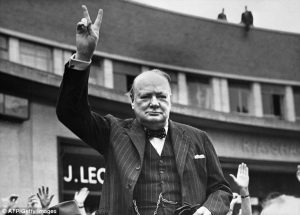Power, and Elite Theories
The efficient organization is not necessarily limited simply to assist existing legislative authority to apply its laws. An efficient state bureaucracy could appropriate decision-making and policy-making power from the de jure political authority. This will arise from the technical expertise of the bureaucrats. Any official who is appointed and promoted is for his technical competence and knowledge which he demonstrated during the course of his official work. For example, when an official has ‘worked for a number of years in an executive department like the Department of Trade and Industry, he will be able to obtain a considerable expertise on industrial relations and view of major industrial interest groups, and also the knowledge would itself be well organized. The Bureaucratic system works “through written documents which are filed far record and speedy reference. As a result of its long-standing concern with an issue a department may formulate a line of its own with which each official is indoctrinated and can be concerned with ease as a result of the organizational advantages of the bureaucracy and the esprit de corps which such a body readily develops”.13
The minister is treated as a political chief. He is the head of those bureaucrats who are responsible for carrying out the policies that he has formulated. However, as Weber has suggested, the minister can be ignorant in the subject in comparison to his officials. To a very large extent he therefore’ has to rely on his officials for information which they are in a position to organize and select. The minister in some cases has to fight for his policy against the policy of his department: be prepared to set his lay judgement against their combined expertise. Sometimes the minister becomes the spokesman of his officials, although he would keep his formal responsibility for making policy. It could be seen that the bureaucracy has become the de facto policy-maker without being fully answer able to the public. “In an extreme case the society is governed by a bureaucratic absolutism that treats the people as objects to be administered rather than as participating citizens and decides issues on grounds of secret administrative convenience”.14 At best bureaucracy offers enlightened paternalism at worst careerism routine and red tape at all times government is remote and in a strict sense irresponsible.15
It could be said that the bureaucracy is a highly efficient political power behind the recognized political authority. At the very least the bureaucracy constitutes a new source of political influence. Some even regard it as the real power behind the sham power of the government.
Together with bureaucracy there are other means of control such as persuasion. Governmental activities are not all the time concerned with guns in order to rule the society. There are less expensive ways available that is to say words. Most of the time governments are engaged in talking, writing, listening, and reading. People in authority find themselves barraged with persuasive communications – fact, analysis, exhortation, and lies – and they reply in kind. They can also hunger for information. “An official who has to take a position on monetary policy, for example, comes to depend on persons who can explain to him the complexities of flow of money and credit, in endless hours of talk, persuasion also carries much of the workload of mutual adjustment of authorities to each other. Fact, analysis, idea and misinformation achieve their effects even with influence is unintended simply because all of us constantly react to our perceptions of the world around us”.16 Persuasion does not touch only authority systems but also every area of man’s behaviour. This is as a result of the fact that the human being is a knowing creature.



